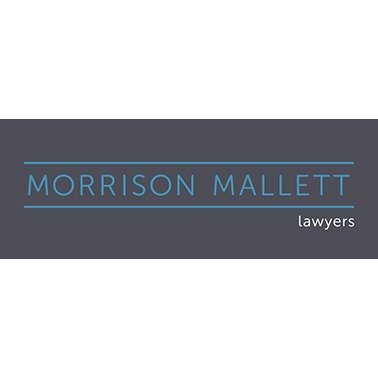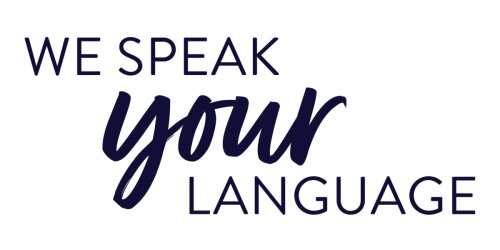Best Art & Cultural Property Law Lawyers in New Zealand
Share your needs with us, get contacted by law firms.
Free. Takes 2 min.
Or refine your search by selecting a city:
List of the best lawyers in New Zealand
About Art & Cultural Property Law in New Zealand
Art & Cultural Property Law in New Zealand encompasses the legal frameworks governing the creation, ownership, sale, and protection of art and cultural heritage. This field is crucial for protecting New Zealand's rich cultural heritage, including the artworks and traditional knowledge of the Māori people, historic buildings, and archaeological sites. Legislation such as the Heritage New Zealand Pouhere Taonga Act 2014 and the Protected Objects Act 1975 plays a significant role in preserving these cultural assets. This area of law also covers issues such as the illicit trade of cultural property and the return of stolen artifacts.
Why You May Need a Lawyer
Individuals or organizations may require legal assistance in Art & Cultural Property Law in a variety of situations. These include navigating the legal requirements for the sale or export of culturally significant items, dealing with disputes over the ownership or provenance of artworks, or seeking advice on the protection of intellectual property tied to cultural heritage. Legal counsel can also be crucial when engaging with repatriation efforts for stolen or disputed cultural objects. Furthermore, lawyers can provide guidance on compliance with regulations governing archaeological sites or historic conservation.
Local Laws Overview
In New Zealand, several key laws affect Art & Cultural Property Law:
- Heritage New Zealand Pouhere Taonga Act 2014: This law provides the framework for the protection and management of historic places and wāhi tapu (sites of significance to Māori).
- Protected Objects Act 1975: It regulates the export of protected New Zealand objects and aims to prevent the illicit trade in cultural artifacts.
- The Copyright Act 1994: Protects the intellectual property rights of artists and creators.
- Te Ture Whenua Māori Act 1993: Focuses on the management of Māori land and cultural heritage.
- The Resource Management Act 1991: Addresses environmental and cultural impacts, including those related to heritage sites.
Frequently Asked Questions
What is considered a protected object in New Zealand?
Protected objects typically include artifacts of national significance, archaeological items, and objects that have importance to Maori cultural heritage. They are defined under the Protected Objects Act 1975.
Can I export an artwork from New Zealand?
Exporting items that are protected under the Protected Objects Act requires a permit. This includes items with significant cultural value. Always check the regulations and consult with authorities if in doubt.
What should I do if I find an archaeological site?
Immediately report the site to Heritage New Zealand. It is illegal to disturb or destroy archaeological sites without the proper authority.
How are disputes over art ownership resolved?
Disputes can be resolved through negotiation, mediation, or through legal proceedings in court, with courts considering provenance and ownership history.
What legal protections are there for indigenous cultural heritage?
In New Zealand, laws such as Te Ture Whenua Māori Act and the Heritage New Zealand Pouhere Taonga Act help protect and manage indigenous cultural heritage.
Can I copy or reproduce artwork legally?
Copyright protects original artworks, so reproducing them without permission can infringe on intellectual property rights. Licensing agreements may be needed.
What steps should be taken if cultural property is stolen?
Report the theft to local authorities and notifiable bodies such as Art Loss Register. Consulting a lawyer experienced in art theft may help in recovery.
How is artist copyright infringement handled?
It may involve cease and desist notifications, negotiations for compensation, and potential legal action for unauthorized reproductions or uses.
What is the role of a lawyer in art transactions?
Lawyers ensure due diligence in provenance checks, draft sales agreements, and consult on issues like taxation or insurance.
How does repatriation of cultural objects work?
Repatriation involves the return of cultural property to its country or community of origin, often requiring diplomatic negotiations and legal proceedings.
Additional Resources
Consider reaching out to the following resources for further assistance:
- Heritage New Zealand: The leading agency for heritage conservation.
- Ministry for Culture and Heritage: Provides policy advice and funding for cultural initiatives.
- Te Papa Museum: Offers resources and advice on cultural preservation.
- New Zealand Intellectual Property Office: Assists with copyright and intellectual property matters.
- Art+Object: Auction and valuation service for art and objects.
Next Steps
If you require legal assistance in Art & Cultural Property Law, start by consulting with a legal expert who specializes in this field. Research potential lawyers online, read client reviews, and prepare a list of questions about your situation. Schedule a consultation to discuss your needs. It's also beneficial to gather all relevant documentation and background information beforehand to facilitate a productive meeting.
Lawzana helps you find the best lawyers and law firms in New Zealand through a curated and pre-screened list of qualified legal professionals. Our platform offers rankings and detailed profiles of attorneys and law firms, allowing you to compare based on practice areas, including Art & Cultural Property Law, experience, and client feedback.
Each profile includes a description of the firm's areas of practice, client reviews, team members and partners, year of establishment, spoken languages, office locations, contact information, social media presence, and any published articles or resources. Most firms on our platform speak English and are experienced in both local and international legal matters.
Get a quote from top-rated law firms in New Zealand — quickly, securely, and without unnecessary hassle.
Disclaimer:
The information provided on this page is for general informational purposes only and does not constitute legal advice. While we strive to ensure the accuracy and relevance of the content, legal information may change over time, and interpretations of the law can vary. You should always consult with a qualified legal professional for advice specific to your situation.
We disclaim all liability for actions taken or not taken based on the content of this page. If you believe any information is incorrect or outdated, please contact us, and we will review and update it where appropriate.
Browse art & cultural property law law firms by city in New Zealand
Refine your search by selecting a city.
















